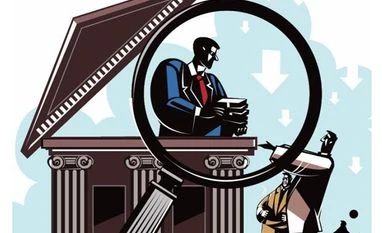Armed with Supreme Court order, banks may invoke personal guarantees of tycoons ranging from Venugopal Dhoot to Kapil Wadhawan to recover unpaid loans from their delinquent firms, sources said Monday.
According to an estimate, top 10 personal guarantors have guaranteed debt of over Rs 1.6 lakh crore. Among the big names, former promoters of Bhushan Steel and Power Sanjay Singhal and his wife Aarti Singhal had furnished personal guarantees worth up to Rs 24,550 crore to take loans from a consortium of bank led by State Bank of India (SBI).
The former promoter of Reliance Communications, Anil Ambani, has also given personal guarantee against the loan taken. Erstwhile promoter Wadhawan stands guarantee to loans taken by DHFL, which is sitting on debt of about Rs 90,000 crore, while Dhoot has also given personal guarantee to a portion of Rs 22,000 crore loan to Videocon.
The Supreme Court in May had held that the November 15, 2019 government notification allowing creditors, usually financial institutions and banks, to move against personal guarantors under the Insolvency and Bankruptcy Code (IBC) was 'legal and valid'.
Post the judgement, a senior official of public sector bank said banks are assessing the level of involvement of those directors who pledged their personal guarantee against the loan.
After assessment, another banker said, banks would move National Company Law Tribunal (NCLT?) for invoking personal guarantee as part of the recovery process.
Also Read
The official said that banks have started receiving calls from some of the promoters for exclusion of their personal guarantee from the non-performing assets. Some of them are coming forward to resolve bad loans to save their personal wealth.
Most of the promoters thought that once their case is admitted under IBC, their past sins and obligations cease, the official said.
However, the order has generated fear among the promoters and directors who pledged their personal guarantee of loosing their personal wealth as part of resolution process, the official said, adding, the personal guarantee angle would expedite the resolution process as the guarantor stands risk of loosing personal property.
Creditor-debtor relationship has got a leg up and this will minimise chances of default in the future.
The concept of 'guarantee' is derived from Section 126 of the Indian Contracts Act, 1872. A contract of guarantee is made among the debtor, creditor and the guarantor. If the debtor fails to repay the debt to the creditor, the burden falls on the guarantor to pay the amount.
The creditor reserves the right to begin insolvency proceedings against the personal guarantor if the latter does not pay. Usually, promoters of big businesses submit personal guarantees to creditors to secure loans and assure repayment.
During the hearings, the government had justified the November 2019 notification extending bankruptcy proceedings to personal guarantors. Attorney General K K Venugopal argued that by roping in guarantors, there was a greater likelihood that they would arrange for the payment of the debt to the creditor bank in order to obtain a quick discharge.
(Only the headline and picture of this report may have been reworked by the Business Standard staff; the rest of the content is auto-generated from a syndicated feed.)
)